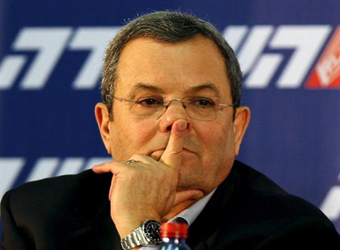Before the violence this week in Cairo, the Israeli government was quietly pleased with the overthrow of President Mohamed Morsi and the crackdown on the Muslim Brotherhood, which has always been hostile to Israel. But now the mass killings have left Israel in the uncomfortable position of being a spectator to the crisis unfolding in Egypt, though one with a huge stake in the outcome.
“I think that the whole world should support Sisi,” Ehud Barak, a former prime minister and defense minister of Israel, said on CNN’s “Fareed Zakaria GPS” last weekend. He was referring to Egypt’s military commander, Gen. Abdul-Fattah el-Sisi, who ousted Mr. Morsi, an Islamist, last month.
After this week’s bloodshed, as the military cleared the Muslim Brotherhood protest encampments in the Egyptian capital, there were no such expressions of support, official or otherwise, for General Sisi.
Israeli officials have not commented publicly on Egypt’s internal affairs, either before or after this week’s brutal events, a policy that speaks to both the fragility and the necessity of Israel’s relations with its strategically important neighbor.
“Anything we say will be held against us,” said an Israeli official, speaking on the condition of anonymity because of what he described as the “volatility” of the diplomatic situation. “If we condemn the violence we will be accused of supporting the Muslim Brotherhood,” he said, referring to rumors already circulating to that effect. “And if we say we don’t condemn it, then it looks like Israel is in cahoots with the Egyptian Army.”
He added: “That does not mean that we don’t have our own opinion and interests.”
Israel’s main interest, according to officials and experts here, is a stable Egypt that can preserve the country’s 1979 peace treaty and restore order along the border in the Sinai Peninsula, where Islamic militant groups are battling Egyptian forces and increasingly threatening Israel.
On Tuesday, the Israeli military used its Iron Dome missile-defense system to defend the southern resort city of Eilat for the first time, intercepting a rocket that it said had been fired from across the border in Sinai. A militant group claimed responsibility for the rocket attack, saying it was revenge for the death days earlier of four of its members in northern Sinai in a drone strike. The group accused Israel of carrying out the strike, though Egyptian military officials denied any breach of the country’s airspace by the Israeli military.
Earlier this month, Israel closed the small airport in Eilat for about two hours after Egypt warned of a potential attack originating in Sinai. At the time, Israeli experts said that the episode showed the heightened security cooperation between the two sides. Contacts between Israel and Egypt have long been conducted mainly through military and intelligence channels.
Yet analysts here say that the tensions along the border could draw Israel into Sinai, further complicating relations with Egypt.
Israel views the Egyptian military as the only force that can stabilize the deeply fractured country, and the Israel-Egypt peace treaty is predicated on the $1.5 billion a year in American military and economic aid to Egypt, the bulk of which goes to the Egyptian armed forces.
Before the military’s assault on the camps in Cairo began on Wednesday, the same Israeli official who spoke on the condition of anonymity about Israel’s interests said that Israel was telling its “friends” in the United States Congress, the White House and any other relevant body that it was in nobody’s interest to cut aid to Egypt, a step that he said would weaken the Egyptian Army and undercut efforts to stabilize the situation. After the assault, the same official was reluctant to discuss those efforts and if they would continue.
The mass killings also have the potential to destabilize Palestinian areas, just as Israel and the Palestinians have renewed peace negotiations.
In the West Bank city of Hebron on Friday, supporters of the Islamic militant group Hamas and other Palestinian activists held protests after midday prayers to protest the killings in Cairo and in support of Mr. Morsi. The protesters clashed with Palestinian Authority security officers in several parts of the city. There were also reports of protests in Ramallah, the seat of the Palestinian Authority.
In Jerusalem, hundreds of members of the Islamic Movement of Israel demonstrated outside the Al Aksa Mosque and accused General Sisi, the Egyptian commander, of collaborating with the United States and of killing Egyptians on behalf of the Jews, according to Israel Radio.
In Gaza, which is controlled by Hamas, an offshoot of the Egyptian Muslim Brotherhood, the Egyptian dead were honored at Friday Prayer.
“I think the Israeli interest is quite clear,” said Efraim Inbar, the director of the Begin-Sadat Center for Strategic Studies at Bar-Ilan University in Israel. “The only factor that can provide this kind of stability is the Egyptian military.”
Danny Yatom, a former chief of Israel’s Mossad intelligence agency, told Israel Radio on Friday that “there is no question that Israel prefers the army to the Muslim Brotherhood and a secular regime over a religious regime” in Egypt.
Mark Heller, an expert on regional and international relations at the Institute for National Security Studies at Tel Aviv University, said that even Hosni Mubarak, the autocratic president of Egypt who was overthrown in the 2011 revolution, was not a friend of Israel. There was no warm peace, just a relationship based on convergent interests, Mr. Heller said, adding that peace “meant avoiding confrontation.”
Sources: The New York Times


